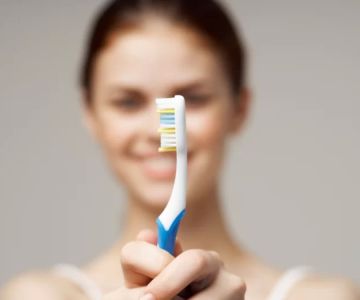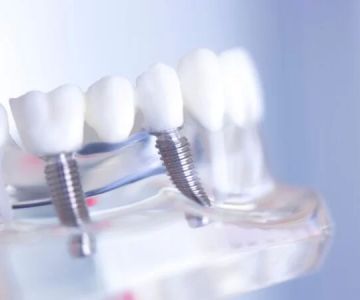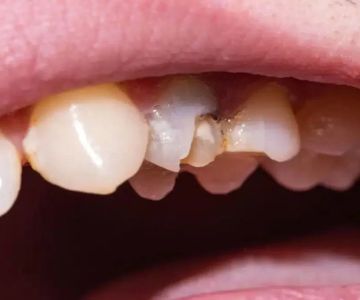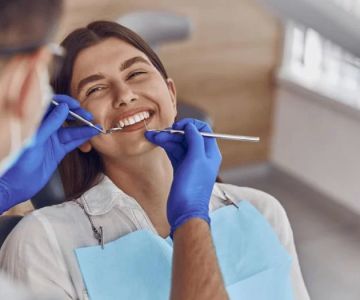
- Causes-Of-Teeth-Cracking-In-Cold-Weather
- Preventive-Measures-For-Teeth-Cracking
- Daily-Dental-Care-Tips-For-Winter
- Real-Life-Experience-And-Professional-Advice
- Finding-Reliable-Products-And-Services
Causes of Teeth Cracking in Cold Weather
Many people experience discomfort or even cracks in their teeth during cold weather, a phenomenon that can be both painful and concerning. Understanding the causes behind this issue is the first step in learning how to stop teeth from cracking in cold weather effectively.
Temperature Sensitivity and Enamel Stress
Cold temperatures cause the hard enamel on teeth to contract, and rapid temperature changes—like drinking hot coffee right after being outside in freezing air—can create stress that leads to tiny fractures. Over time, these small cracks may worsen, making teeth more vulnerable.
Underlying Dental Conditions
People with enamel erosion, dental restorations, or untreated cavities are at higher risk. The enamel’s natural protective barrier weakens, and sudden exposure to cold air or cold foods intensifies the risk of cracking. Those with bruxism, or teeth grinding, can also see more damage during winter months.
Dry Mouth and Reduced Saliva Flow
Cold weather often reduces hydration and saliva production, which normally protects teeth by neutralizing acids and lubricating the mouth. Less saliva means less natural protection, increasing the chance of cracks.
Preventive Measures for Teeth Cracking
Knowing how to stop teeth from cracking in cold weather requires proactive habits and protective measures designed to shield your teeth from the harsh effects of winter.
Wear a Mouthguard if Necessary
If you grind your teeth or clench your jaw, especially during sleep, a custom-fitted mouthguard can be an effective barrier against cracks. Many dental clinics offer this service, tailored for winter care.
Avoid Extreme Temperature Changes
Try not to expose your teeth to rapid temperature swings. For example, avoid immediately sipping hot drinks after being outside in cold air. Let beverages cool slightly before drinking, and consider drinking lukewarm water instead of ice-cold beverages.
Keep Lips and Mouth Moisturized
Using lip balms and staying hydrated helps maintain moisture in the mouth. Consider using a humidifier indoors during dry winter months to support saliva production.
Daily Dental Care Tips for Winter
Routine care is vital to prevent teeth from cracking during colder seasons. Proper hygiene combined with some winter-specific tips can make a significant difference.
Use a Soft-Bristled Toothbrush and Fluoride Toothpaste
Brushing gently with a soft-bristled brush reduces enamel wear. Fluoride toothpaste strengthens enamel and can help repair minor damage. Avoid overly abrasive toothpastes that may exacerbate sensitivity.
Limit Sugary and Acidic Foods
Acidic foods weaken enamel, making teeth more prone to cracks. Reducing intake of soda, citrus, and sugary treats supports dental health during winter.
Schedule Regular Dental Check-Ups
Professional cleanings and exams are crucial. Dentists can identify early signs of enamel damage or cracking and recommend protective treatments like sealants or varnishes.
Real-Life Experience and Professional Advice
Consider the case of Mark, an avid runner who trained outdoors through harsh winters. He noticed increased tooth sensitivity and small cracks developing, especially after morning runs in freezing air. Upon consulting his dentist, he learned to use a custom mouthguard, adjust his hydration habits, and avoid cold drinks immediately after exercise. These changes dramatically reduced his symptoms.
This story highlights the importance of personalized care and expert guidance. Dental professionals emphasize that early intervention and tailored solutions are key in managing teeth cracking caused by cold weather.
Finding Reliable Products and Services
For those seeking trusted products to protect their teeth or professional dental care recommendations, Dentistry Toothtruth offers valuable resources. From high-quality mouthguards to specialized toothpaste and professional service referrals, their guidance can help you maintain healthy teeth all winter long.
By combining practical daily care, preventive measures, and professional advice, you can effectively stop teeth from cracking in cold weather and enjoy the season with confidence.







 Westgate Dental Arts
Westgate Dental Arts Coventry Family Dental
Coventry Family Dental Familia Dental
Familia Dental Dr. Daniel S. Fife, DDS
Dr. Daniel S. Fife, DDS Dentistry At Suburban Square: Michael I. Wollock, DMD
Dentistry At Suburban Square: Michael I. Wollock, DMD Comfort Care Dental
Comfort Care Dental The Importance of Oral Health Education During Pregnancy for a Healthy Pregnancy
The Importance of Oral Health Education During Pregnancy for a Healthy Pregnancy Why Skipping Dental Checkups Can Lead to Bigger Oral Health Problems
Why Skipping Dental Checkups Can Lead to Bigger Oral Health Problems Best Tips for Brushing Your Teeth Properly for Healthy Gums: Essential Techniques for Oral Health
Best Tips for Brushing Your Teeth Properly for Healthy Gums: Essential Techniques for Oral Health Advantages of Porcelain Dental Restorations
Advantages of Porcelain Dental Restorations How Can Diabetes Cause Tooth and Gum Problems? Preventing and Managing Oral Health Issues
How Can Diabetes Cause Tooth and Gum Problems? Preventing and Managing Oral Health Issues Healthy Habits for Promoting Good Oral Health and Hygiene: Tips for a Healthy Smile
Healthy Habits for Promoting Good Oral Health and Hygiene: Tips for a Healthy Smile